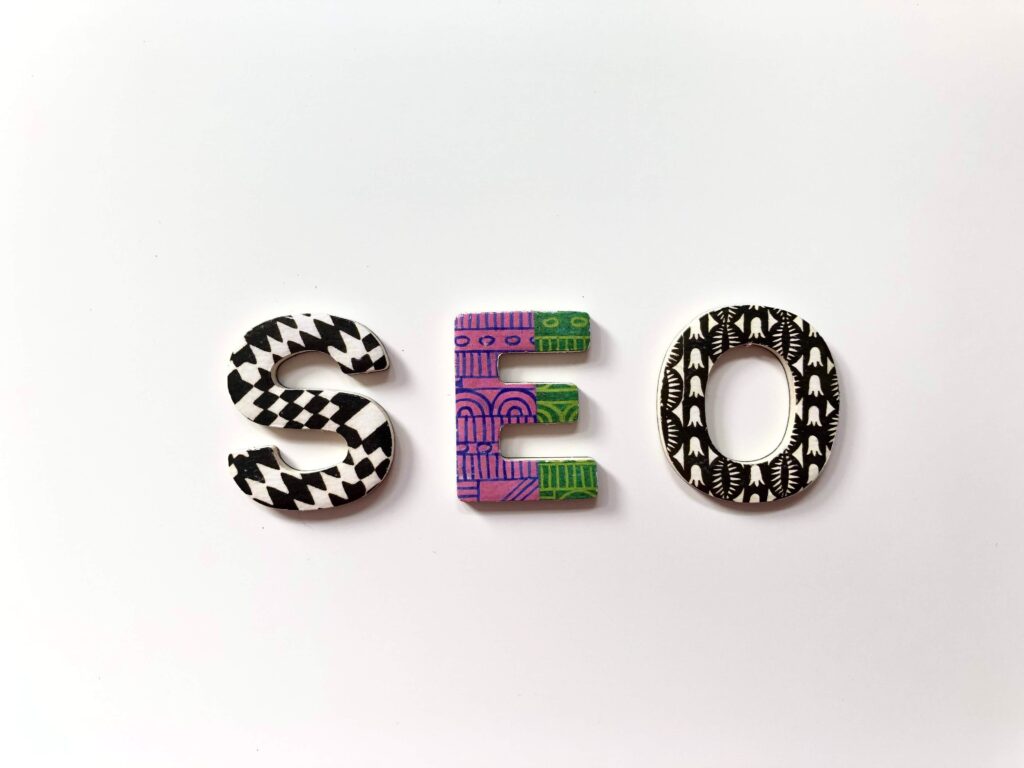Looking to Boost Your Local Business? Discover India’s Best Company
In today’s world, where everyone uses the internet to…
Lorem ipsum dolor sit amet, consectetur adipiscing elit.
Lorem ipsum dolor sit amet, consectetur adipiscing elit.
Lorem ipsum dolor sit amet, consectetur adipiscing elit.
Lorem ipsum dolor sit amet, consectetur adipiscing elit.
With a track record of assisting over 200 clients across the globe, we’ve empowered businesses in cultivating a strong and finely-tuned online footprint, leading to global brand recognition.
Our vision is to ensure tailored marketing that drives leads. Our services are carefully drawn out to help you generate conversions and stand out in the business world.
Developing connections is the topmost priority needed between your business and your customers. To achieve this, the best digital marketing Company, India called Strive Digi tech will help you achieve this result.
Strive Digi tech , the digital marketing agency India, unleash the potential of your online presence. We do not only just focus on marketing, but we create an unforgettable experience with your audience. Our services are driven by data analytics, digital technology and intense market research.
As a top SEO company India, we help your business harvest organic growth and spark. We help you rule the business world without engaging content and capture hearts with social integration.

Are you in search of a leading SEO company in India that can effectively enhance your online presence, generate more leads and sales, and improve your search engine rankings? Look no further than STRIVE DIGI TECH . With our specialized expertise in providing search engine optimization (SEO) services, we are committed to delivering cutting-edge, tailored, and agile solutions that drive tangible results for businesses across various industries.
At Strive Digi Tech , we amalgamate crucial SEO elements, employ powerful strategies, and leverage the expertise of our highly experienced SEO professionals to significantly boost your online visibility, increase your return on investment (ROI), and foster overall business growth.
If you are looking to elevate your digital presence and achieve remarkable business outcomes, Strive Digi Tech is your ideal partner. Trust in our proven expertise and let us take your business to new heights in the digital landscape.
With a distinguished presence and a formidable 9+ years of experience, our company takes pride in being a leading player in the field of SEO services. Our team comprises over 20 highly skilled professionals, each equipped to handle diverse challenges with expertise and influence.
We offer an extensive array of result-oriented SEO services in India, complemented by full-spectrum digital development solutions. Our comprehensive approach caters to businesses of all sizes, irrespective of their geographic location, empowering them to generate more leads and drive sales.
Whether you are looking to enhance your online presence, boost organic traffic, or increase your revenue, our expert team is committed to delivering exceptional results. Partner with us, and we will harness the power of SEO to propel your business towards sustained growth and success.
If you’re looking for a comprehensive digital marketing strategy, campaign, or other solution tailored specifically for your business, look no further! Our company provides custom, results-oriented, and industry-specific digital marketing solutions designed to help you achieve To get started, enquire here.
Through our services, we create unique and endearing website designs that captivate, engage and deliver results. The result increases the performance of businesses both locally and internationally.
Our services include









At our company, we specialize in creating exceptional interactive websites that not only provide a superior user experience but also set your business apart from competitors. Our team’s expertise lies in crafting engaging and dynamic web solutions that captivate visitors and leave a lasting impression.
We understand the significance of converting website visitors into loyal customers. Therefore, our designs are strategically optimized to encourage seamless user interactions and guide potential customers towards making informed decisions. With our user-centric approach, we ensure that your website becomes a powerful tool for driving conversions and achieving business success.
At Strive Digi Tech, integrity is at the heart of everything we do. We take immense pride in delivering services that are characterized by transparency and affordability. Our commitment to maintaining the highest ethical standards is unwavering, and we strive to build long-lasting relationships with our clients based on trust and reliability.
One of our key principles is working in harmony with your budget. We understand that every business has unique financial considerations, and we tailor our services to suit your specific requirements and constraints. Our aim is to ensure that you get the best value for your investment while achieving the desired results.
Are you ready to be ahead of your competitors and remain there? Strive Digi tech dish out solutions to marketing your products and services. We help convert visitors to customers and clients. Are you ready to work with the best digital marketing agency India? Don’t hesitate to reach out to us today and be ready for a significant change in your business.
 Malkeet Singh20. July, 2023.I had the pleasure of hiring Strive Digi Tech for my website development project, and I must say, they did an amazing job! From start to finish, the team at Strive Digi Tech displayed an exceptional level of professionalism and expertise. Thank you, Strive Digi Tech, for the wonderful website you've created for us. It has been a pleasure working with your team, and I look forward to collaborating on future projects!
Malkeet Singh20. July, 2023.I had the pleasure of hiring Strive Digi Tech for my website development project, and I must say, they did an amazing job! From start to finish, the team at Strive Digi Tech displayed an exceptional level of professionalism and expertise. Thank you, Strive Digi Tech, for the wonderful website you've created for us. It has been a pleasure working with your team, and I look forward to collaborating on future projects! Tushar Luthra5. July, 2023.Great job done by the team at Strive Digitech. They’ve helped us build our business website and it’s really good. They were involved from conception of our website idea to its launch and they still answer our questions whenever we reach out to them. Overall, fantastic work!
Tushar Luthra5. July, 2023.Great job done by the team at Strive Digitech. They’ve helped us build our business website and it’s really good. They were involved from conception of our website idea to its launch and they still answer our questions whenever we reach out to them. Overall, fantastic work! amarjeet singh5. July, 2023.Exceptional Digital Marketing Services by Strive Digi Tech I recently had the pleasure of working with Strive Digi Tech, and I must say that their digital marketing services are outstanding. As a business owner, I understand the importance of having a strong online presence, and Strive Digi Tech helped me achieve just that.
amarjeet singh5. July, 2023.Exceptional Digital Marketing Services by Strive Digi Tech I recently had the pleasure of working with Strive Digi Tech, and I must say that their digital marketing services are outstanding. As a business owner, I understand the importance of having a strong online presence, and Strive Digi Tech helped me achieve just that. Virat thakur20. June, 2023.Strive Digi Tech is hands down one of the best web designing companies in Mohali, Chandigarh! Their expertise and dedication to delivering top-notch web design solutions are truly commendable. If you're looking for a reliable web designing company, I highly recommend Strive Digi Tech. They will take your online presence to the next level!
Virat thakur20. June, 2023.Strive Digi Tech is hands down one of the best web designing companies in Mohali, Chandigarh! Their expertise and dedication to delivering top-notch web design solutions are truly commendable. If you're looking for a reliable web designing company, I highly recommend Strive Digi Tech. They will take your online presence to the next level! Sonali Sahu23. May, 2023."Exceptional service! Strive Digi Tech surpassed my expectations with their expertise and prompt solutions. Highly recommended!
Sonali Sahu23. May, 2023."Exceptional service! Strive Digi Tech surpassed my expectations with their expertise and prompt solutions. Highly recommended! Sunil Kumar22. May, 2023.These guys helped a lot in my business , I have hired them to handle my Instagram account and they did it amazingly . Highly recommended for Social media promotion 🙂Google rating score: 4.8 of 5, based on 35 reviews
Sunil Kumar22. May, 2023.These guys helped a lot in my business , I have hired them to handle my Instagram account and they did it amazingly . Highly recommended for Social media promotion 🙂Google rating score: 4.8 of 5, based on 35 reviews
In today’s world, where everyone uses the internet to…
Sort the links according to order. The links have…
How can you improve your Google ranking? As all…
Local SEO is focused on search optimization for local areas. For example, hotels in Delhi. Local Seo is extremely useful for area specific business, stores or service providers like housekeeping services, plumbing services etc.
Everything you do on your own website, including the content, meta tags, and back-end optimization, is considered on-page SEO. Off-page SEO is more difficult to manage. Off-page SEO refers to activities that are related to your website yet take place elsewhere. Backlinks, domain authority, and other factors may be included.
To select keywords, SEO specialists employ a range of methods. The most popular ones include Ubersuggest, Ahrefs, Moz, and Google Search Console. Additionally, we could make recommendations based on the keywords that a customer wants to rank for.
Yes! Almost everyone search on internet before visting to any office or buying any product. Online presence of business indicated that business is authentic and customers show their trust easily. Your business gains credibility and increases brand recognition thanks to an internet presence. You can promote your business or share any information through your website easily in less time and efforts. Apart from that it is a good way of building customer relationship as well.
Social media platforms enable user interaction and connection through shared content. Initaily it was used for communication and social gathering only but its popularity and large user base made it a big marketing platforms. Social media platforms are ideal for promoting goods and services, engage with current and new clients, and raise brand awareness.
The amount of time it takes to appear on the first page of Google search results relies on a number of factors, such as the Influence of the Competition and the current Website Optimization. A website that just needs a few minor changes will rank faster than one that requires a full SEO campaign. Although it may take substantial time to see significant results, our team is committed to positive results within 3-4 months.
Designing and developing a website can take some time, but everything we do is with passion and precision. We want to make sure that all of our customers are happy with the final product, so we take the time to custom tailor each website to their specific needs. If you have any questions or would like to get a better understanding of our process, don’t hesitate to contact our sales team. You can also visit our website at (www.strivedigitech.com) or reach us at +91-8219941967 or info@strivedigitech for more information about our plans and services.
At our agency, we offer a wide range of digital marketing services that can help improve the online visibility and performance of your brand. These services include SEO, website design, PPC, social media services, content marketing, ORM marketing, and more. With our help, you can reach your target audience more effectively and improve your bottom line. Contact us today to learn more about what we can do for you.